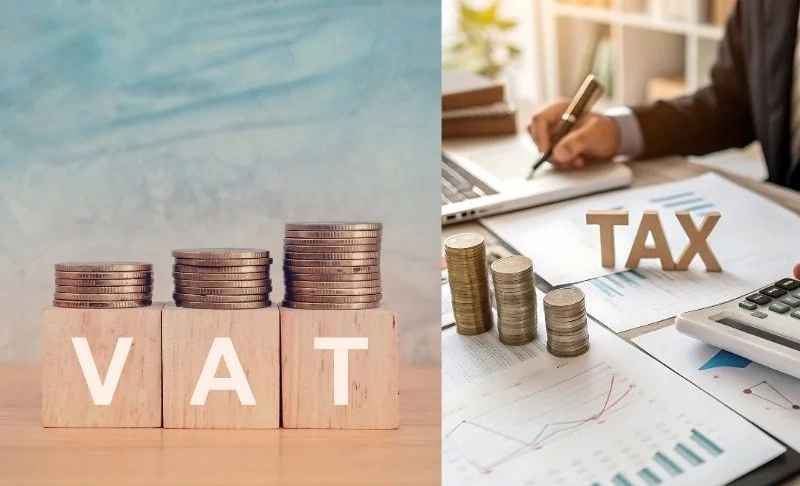With the UAE’s shift toward a more structured tax environment, businesses are increasingly facing questions about how corporate tax in Dubai compares to VAT. While both taxes are now essential parts of doing business in the Emirates, they serve very different purposes and affect your business in unique ways. Understanding the distinction is critical—especially as new regulations tighten and compliance becomes non-negotiable.
Whether you’re running a startup, a multinational, or a Dubai free zone company, knowing the difference between corporate tax Dubai and VAT can help you better manage your tax obligations and avoid unnecessary penalties. Here’s a complete breakdown of both taxes and how they impact UAE businesses in 2025.
What is Corporate Tax in Dubai?
Corporate tax is a direct tax imposed on a business’s net profit. Starting from June 2023, the UAE introduced a federal corporate tax at a standard rate of 9% on taxable profits exceeding AED 375,000. This move aims to align the country with global tax standards while maintaining a competitive business environment.
Key features include:
- Applies to UAE-resident businesses and foreign entities with a permanent establishment in the UAE.
- Companies in Dubai free zones may still enjoy a 0% tax rate, but only if they meet specific conditions.
- Exemptions may apply to certain government entities, natural resource extraction, and small businesses under a relief threshold.
What is VAT in the UAE?
Value Added Tax (VAT) is an indirect tax introduced in the UAE in 2018. It applies at a standard rate of 5% on most goods and services at every stage of the supply chain.
Key features of VAT include:
- Paid by the end consumer, but collected and reported by businesses.
- Applies regardless of whether your business is profitable.
- Mandatory registration if annual taxable supplies exceed AED 375,000.
- Managed by the Federal Tax Authority (FTA).
Corporate Tax vs. VAT: A Side-by-Side Comparison
| Criteria | Corporate Tax Dubai | VAT (Value Added Tax) |
| Type of Tax | Direct Tax | Indirect Tax |
| Applied On | Net business profit | Sale of goods and services |
| Tax Rate | 9% (standard) | 5% |
| Threshold | AED 375,000 in annual net profit | AED 375,000 in annual taxable supplies |
| Who Pays | Businesses with taxable profits | End consumers (collected by businesses) |
| Filing Frequency | Annually | Usually quarterly |
| Main Authority | UAE Ministry of Finance | Federal Tax Authority (FTA) |
| Applicable to Free Zones? | Sometimes (depends on activity & compliance) | Yes |
| Impact on Cash Flow | End-of-year obligation | Ongoing impact on pricing and billing |
How Free Zone Companies Are Affected?
For companies operating in Dubai free zones, corporate tax may still be 0%, provided they meet the qualifying criteria—such as not conducting business with the mainland and being involved in certain “qualified activities.” That said, VAT still applies to free zone entities unless they deal exclusively in designated zones or international exports.
So while your company may be exempt from corporate tax in Dubai free zone, you’ll likely still need to comply with VAT regulations.
Why You Should Work with a Corporate Tax Consultant in Dubai
Navigating these two tax systems isn’t always straightforward. A professional corporate tax consultant Dubai can help you:
- Assess your eligibility for exemptions or incentives.
- Prepare and file accurate tax returns.
- Structure your business efficiently to reduce liabilities.
- Stay compliant with updates to both corporate tax and VAT laws.
For growing or cross-border businesses, hiring a tax advisor is not just useful—it’s essential.
Conclusion
As the UAE’s tax landscape evolves, businesses must understand how corporate tax Dubai and VAT differ—and how each one affects operations, cash flow, and profitability. While VAT applies to sales regardless of profit, corporate tax is linked directly to your bottom line. Whether you’re working with a corporate tax consultant Dubai or managing taxes in a Dubai free zone, proactive planning is the key to staying compliant and competitive in 2025 and beyond.
FAQs
What is the main difference between corporate tax and VAT in the UAE?
Corporate tax is a direct tax on business profits, while VAT is an indirect tax on goods and services.
Who needs to pay corporate tax in Dubai?
Businesses with annual profits over AED 375,000 are subject to corporate tax in Dubai.
Is VAT still applicable if a business is exempt from corporate tax?
Yes, VAT applies regardless of corporate tax status, including in free zones.
Do free zone companies pay corporate tax in Dubai?
Free zone companies may be exempt from corporate tax if they meet qualifying conditions.




